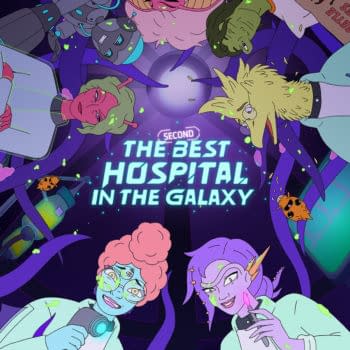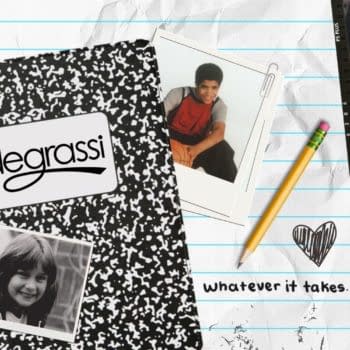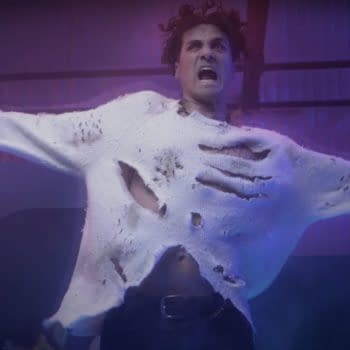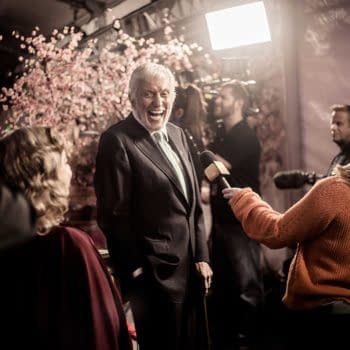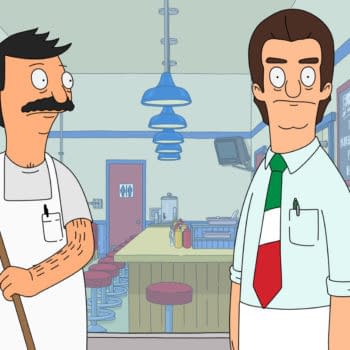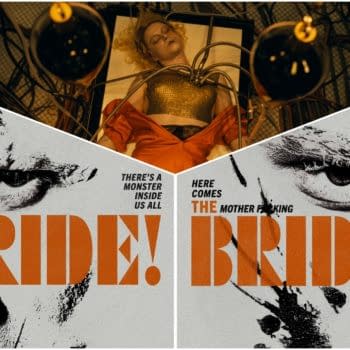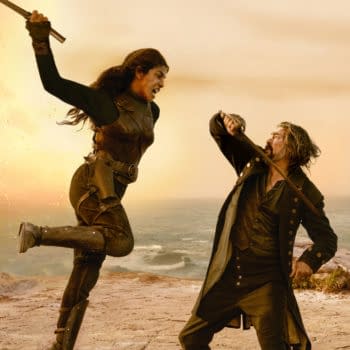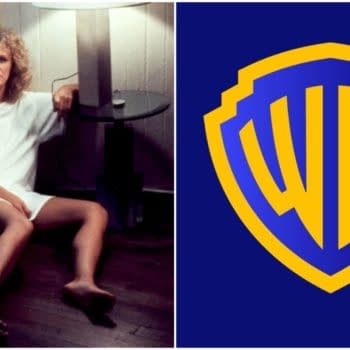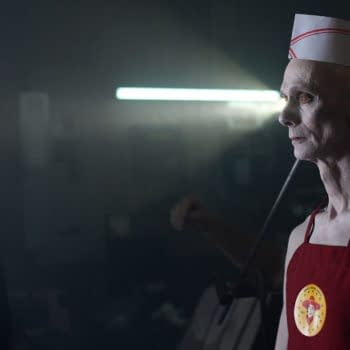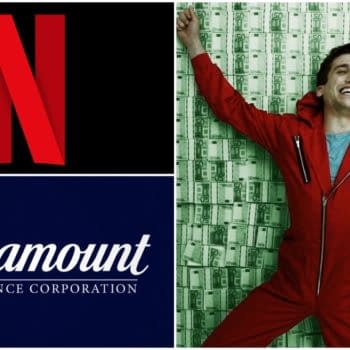Posted in: Interview, Movies, Sundance | Tagged: editor, interview, mirror party, patrick lawrence, short film, sundance, Sundance 2023
Mirror Party: Editor Patrick Lawrence Talks Sundance Short Film
Patrick Lawrence, editor of the short film Mirror Party by Bridey Elliott, talks about the editing process and roleplaying breakup conversations.
Patrick Lawrence has been editing many feature films since 2014, and his latest dive into the world of Adobe Premiere Pro involves the short film Mirror Party, which premiered at this year's Sundance Film Festival. Lawrence's other films that have also premiered at Sundance Film Festivals in the past include Scare Me (Shudder) and Clara's Ghost (MGM/Orion). Mirror Party, created by Bridey Elliott, features a story about two friends role-playing a break-up conversation. The film premiered as a part of a shorts program for the festival this year and has Lawrence's editing signature within it. We got to chat with the editor about what remains most important to him in his process, what excites him about film, and much more!
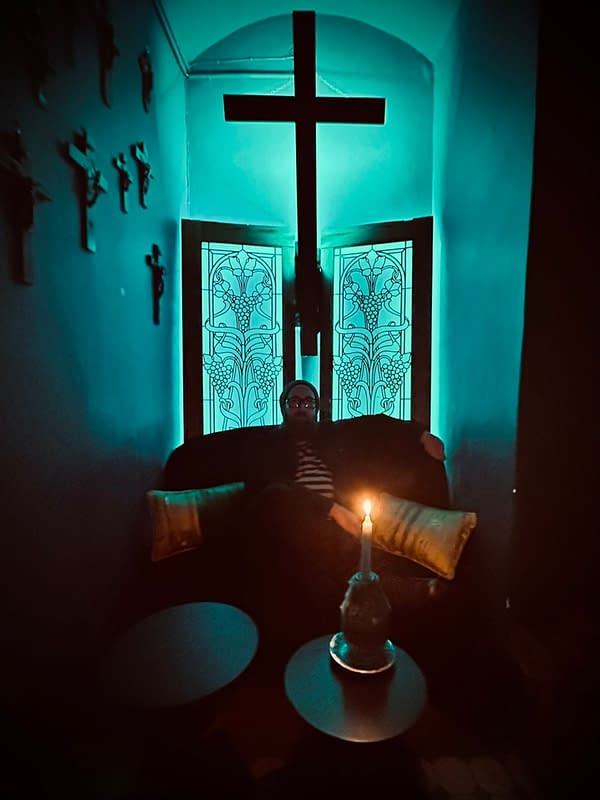
What has been your experience with Adobe Premiere Pro editing film before this project, and how has it changed since completing your work?
I have been a professional film editor since 2011. I was drawn to editing in film school while taking a course on video production and learning the basics of non-linear editing on Adobe Premiere. While I had been pursuing a career as a Director, I found that editing could be an extension of directing, and it gave me the ability to have an impression on the third re-write of a film. That creative control was very appealing to me.
I have been using Premiere Pro and the Adobe Creative Cloud for most of my career now – I like to consider it an extension of my hands/ fingers or a muscle that I can flex. I know my way in and out of the program so well after all these years that using it has become second nature. The toughest and yet most exciting part is when new features are introduced, and you have to take the time to learn them and adopt them into your workflow.
On Mirror Party, we used features such as Speech to Text, Lumetri Color, and Frame.io extension to help streamline the edit… Frame.io was a big component of our workflow on this film because the two creators – Bridey Elliott and Angela Trimbur were split between Los Angeles and New York during post-production.
I used Frame.io integration to export cuts directly from Premiere Pro so that Angela could watch in New York while working with Bridey in the room here in LA. Being able to reference notes directly within the Premiere Pro workspace is a dream and really helps streamline my workflow while doing the tedious work of addressing creative feedback. My favorite newest feature is Speech to Text, which I think can really break new ground and streamline your edit, not only in documentary formats but also narrative. I have been using it most recently as a script-based editing tool, which is gravely missing from Premiere.
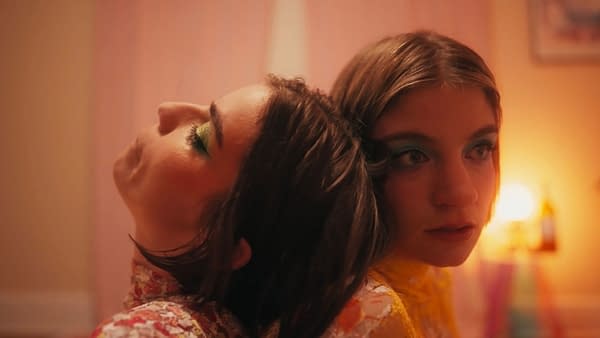
Are there any filmmakers that inspire you? And why that person?
I'm most inspired by filmmakers who come from a background in music or music video because it's very similar to my own path in the business. I spent ten years playing music professionally (as a drummer) before switching to filmmaking. I then began my career by directing and editing music videos for friends of mine that I knew in the music industry. It's cliche to say now, but one of my biggest influences is David Fincher, who started out as a phenomenal MV director before making the jump to narrative features – Not only has films like Se7en and Fight Club been influential on my career as an editor but so have music videos he directed for artists such as "Judith" by A Perfect Circle.
Specifically, an editor that I am always quite enamored with is Tom Cross. His work on Whiplash really spoke to me personally as both a Drummer and an Editor. His ability to whip up a frenzy within the rhythm of a scene has always been an inspiration of mine, and I have tried time and time again to recreate that energy within my own work, especially on films like Clara's Ghost and Scare Me.
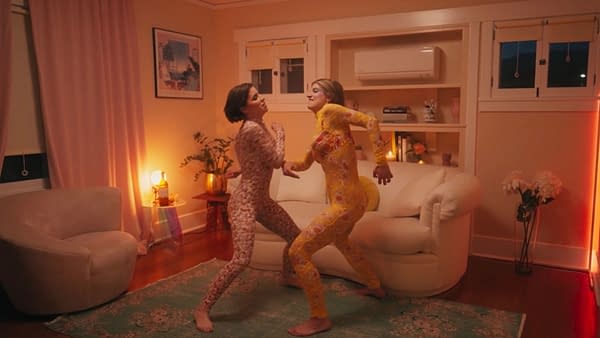
What excites you about filmmaking and why?
I'm excited about creating, period. My entire life has been spent expressing myself through any means necessary – Drawing, Painting, Music, and Film. I eventually concluded that the thing that makes me most happy in this world is when I am creating something from nothing. With filmmaking, the editor can shape the final version of the film before it gets in front of an audience. To me, it is an extension of directing that tends to go unnoticed by the general public and critics alike. When I watch a film that I have cut, my first thought is – I made this. Because I did… Yes, the director, the screenwriter, the cinematographer, etc., all made it too, but I built it from nothing… just a pile of frames that I tied together to make something coherent and watchable… And THAT is what gets me most excited about making movies.
Where did the inspiration for a story involving a break-up conversation come from?
I think everyone has had the experience of longing to say something very disruptive to a person that you are romantically involved with… and whether we rehearse it in our own heads or just speak it to ourselves – the need to spew it all out before doing it in person is an essential form of therapy. And in Mirror Party, we meet two best friends who decide to experiment with reenacting a scenario where one of them has to have that disruptive talk with the man she is dating, only to have it spiral into a gender-bending fever dream.
How has your creative outlook changed since premiering your first short for Sundance back in 2016?
Mirror Party is my seventh film to premiere at the Sundance Film Festival since 2016 (Dogwalker, Affections, Clara's Ghost, Men Don't Whisper, Scare Me, The Starr Sisters, Mirror Party). On a few of those films, I have been very lucky, but for the most part, I believe that personal stories, powerful performances, and unique visions drive a good Sundance film. I think overall, from my experiences at the 'dance, the one thing I've learned is what type of film won't get into Sundance. With that in mind, I definitely approach each project with a self-awareness of trying to make the best film possible with the material that is given to me.





